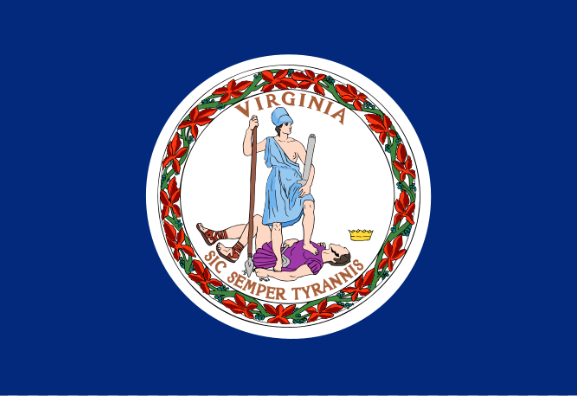United States
Virginia : Sic semper tyrannis

- Share
- Tweet
- Sic semper tyrannis https://racism.io/united-states/virginia-sic-semper-tyrannis/">
Virginia is a state located in the southeastern United States. Virginia is the 12th most populous state in the country with a population of over 8 million people. Virginia is also one of the 13 original colonies that formed the United States. The capital city of Virginia is Richmond and the largest city is Virginia Beach.
Virginia is known for its historical landmarks, stunning scenery, and abundance of recreational activities. Some of Virginia’s most popular tourist attractions include Colonial Williamsburg, Monticello, Shenandoah National Park, and Virginia Beach.
Virginia also has a long history of racism and discrimination. Virginia was one of the key states in the Jim Crow era of segregation and racial discrimination. Virginia’s Jim Crow laws were some of the most restrictive in the country and resulted in African Americans being denied basic rights and opportunities.
Virginia’s Jim Crow laws were finally struck down in the late 1960s as a result of the Civil Rights Movement. However, racism and discrimination continue to be problems in Virginia today. African Americans in Virginia still face disparities in education, employment, and income. Virginia is also home to several Confederate monuments and symbols which many believe glorify the racist history of the state.
The history of racism in Virginia is a long and complex one, dating back to the colonial period when the first African slaves were brought to the state. From the early days of slavery to the civil rights movement and beyond, Virginia has been a hotbed of racial tension and struggle.
Early Virginia and the Beginnings of Slavery
In 1619, the first Africans were brought to Virginia as indentured servants, but within a few years, the practice of slavery had taken hold. By the mid-17th century, Virginia had become a slave society, with most of the population being made up of enslaved Africans. Slaves were used primarily in the tobacco industry, which was the mainstay of the Virginia economy.
During the early years of slavery in Virginia, the slave trade was largely unregulated, and many Africans were brought over in inhumane conditions. The enslaved population was subjected to brutal working conditions and severe punishment for even minor infractions.
The Civil War and Reconstruction
The Civil War brought an end to slavery in Virginia, but it did not bring an end to racism. The state was deeply divided over the issue of slavery, with some supporting abolition and others vehemently opposed. After the war, Virginia went through a period of reconstruction, during which time African Americans were granted the right to vote and hold public office.
However, this progress was short-lived, as the state soon enacted laws designed to disenfranchise black voters and limit their rights. These laws, known as Jim Crow laws, were in place throughout the state for much of the 20th century, and enforced segregation in schools, public transportation, and other areas of life.
Civil Rights Movement and Beyond
The civil rights movement of the 1960s brought significant change to Virginia and the rest of the United States. In Virginia, civil rights leaders such as Oliver Hill, Barbara Johns, and Henry Marsh led the fight for equal rights and desegregation.
In 1954, the landmark Supreme Court decision Brown v. Board of Education ruled that segregation in public schools was unconstitutional, and Virginia began the process of desegregating its schools. However, this process was slow and difficult, and it was not until the 1970s that Virginia’s schools were fully desegregated.
Despite the progress that has been made, racism continues to be a problem in Virginia and throughout the United States. Racially motivated violence and hate crimes have occurred in the state in recent years, and there are ongoing debates about the use of Confederate symbols and monuments in public spaces.
The history of racism in Virginia is a long and difficult one, marked by slavery, segregation, and discrimination. While progress has been made in recent years, there is still much work to be done to achieve true equality and justice for all Virginians.
SUNDOWN TOWNS IN VIRGINIA
Sundown town, in U.S. history, is a town that excluded nonwhite people—most frequently African Americans—from remaining in town after sunset.
Here is a current list of sundown towns in Virginia. This list has been created by Tougaloo College in Tougaloo, MS. This list is a work in progress. Some cities have been confirmed as sundown towns and some are listed for other or similar reasons.
Buchanan County
Chincoteague
Clintwood
Colonial Heights
Elkton
Falls Church *
Fieldale
Grundy
Narrows
Poquoson
Richlands
Weber City
Wise












You must be logged in to post a comment Login